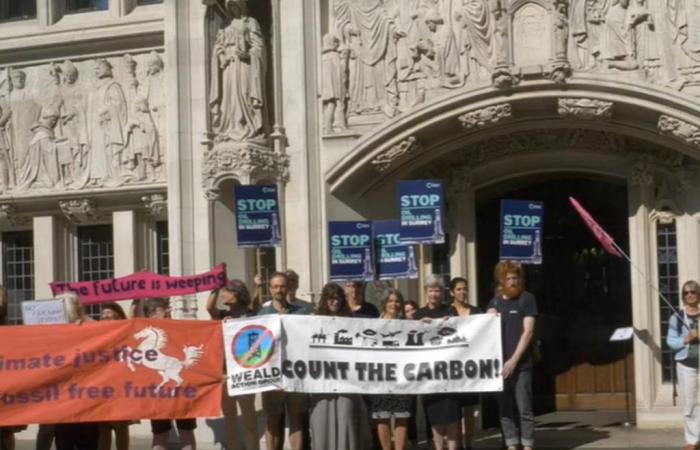
The overall climate impact of burning fossil fuels should be taken into account and assessed when granting permission for drilling sites, the UK Supreme Court has ruled in a landmark verdict
At a time when new projects must be taken into consideration extractionlocal authorities should consider and analyze all possible climate impacts that could arise from it.
This is what emerges from a historic ruling by the highest court in the UK, according to which a local council in England should have considered the emissions resulting from the combustion of oil and not just the more limited effects of its extraction.
Read also: Russia has found vast oil and gas reserves in the British Antarctic and it’s not good news at all
The court indeed held illegal Surrey County Council’s decision to expand a permit.
Expanded permission for the project at Horse Hill, near Horley, in 2019 must be cancelled, Judge George Leggatt has ruled.
The case
The case was initiated by the activist Sarah Finch, who challenged Surrey County Council’s decision to extend planning permission for an oil drilling well at Horse Hill, on the Weald. She said that when assessing the environmental impacts of the project, greenhouse gas emissions from the use of oil should have been taken into account, not just the drilling site itself.
The purpose of fossil fuel extraction is to make the hydrocarbons available for combustion – three of the five judges agreed. It can therefore be stated with almost certainty that, once the oil has been extracted from the ground, the carbon it contains will sooner or later be released into the atmosphere in the form of carbon dioxide and will thus contribute to global warming.
The International Energy Agency has meanwhile said that no new oil and gas exploration should be carried out if global warming is to be limited to 1.5°C (2.7°F) above pre-industrial temperatures.
The Court noted that the law governing environmental impact assessment in the United Kingdom does not impose a geographical limit on impacts:
In principle, all likely significant effects of the project must be assessed, regardless of where (or when) those effects will be generated or felt. There is no justification for limiting the scope of the assessment to effects expected to occur at or near the project site.
The Court’s decision? It certainly won’t stop public bodies from approving projects with a large climate impact, but it will in any case strengthen the reasons for refusal.
Don’t want to miss our news?
Read also:





